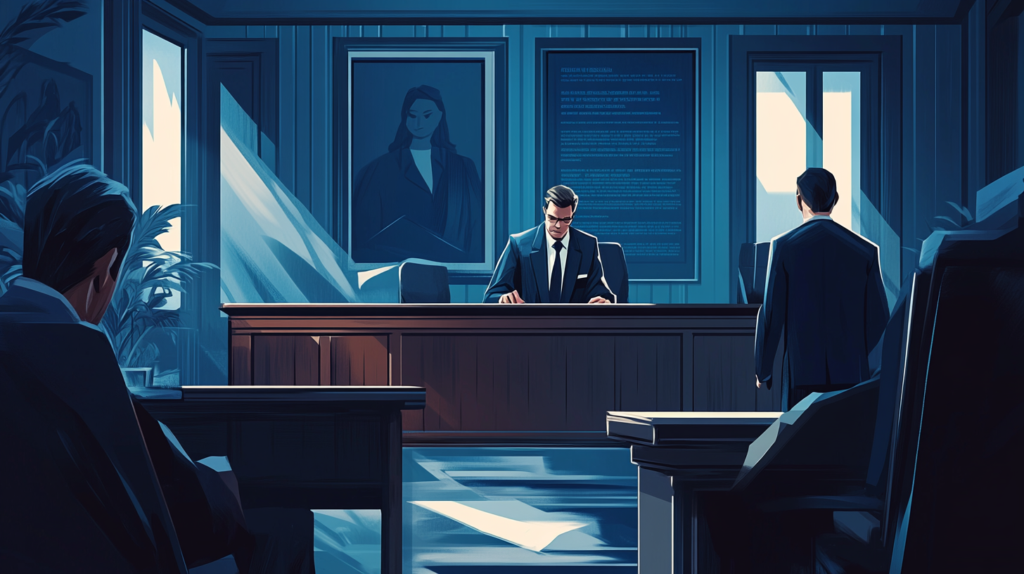When you create a trust, you give someone else control over your funds and property. These parties are supposed to act in your best interests and follow the trust agreement, which is required by law. Unfortunately, this doesn’t always work out in the way it was intended. A trustee may violate the trust agreement or break fiduciary obligations. Litigation is the most prevalent consequence when a trust agreement is not followed.
Trust litigation can hold a trustee accountable and settle disputes among the trustee and trust beneficiaries. It may challenge the trustee, remove them, and/or recoup misused funds.
There may be multiple reasons for trust litigation if a beneficiary believes the trustee has violated their obligations or acted contrary to the trust agreement. Trust litigation is complicated, so it is in your best interest to hire an expert attorney to assist you in managing it and defending your interests. Understanding trust litigation helps you safeguard your rights and interests. We will take a deeper dive into trusts, and trust litigation, below.
What is a Trust?
You must know something about trusts and trust litigation to understand what a trust litigation attorney is and what exactly they do. There are different kinds of trusts, each a formal document that does a different job. No matter what type of trust is set up, its primary purpose is to give the person who formed it power over how their wealth and possessions are handled and given out after their death.
A trust is a formal agreement between a trustor, a trustee, and one or more beneficiaries. The trustor is the individual who sets up the trust to say how they want their assets to be distributed after they die. The individual chosen to handle the trust’s property is the trustee. They are tasked with following the trust’s rules and handling the property in a way that benefits the recipients and follows the law. Last but not least, the beneficiary is the individual (or multiple individuals) who the trust benefits.
What is Trust Litigation?
Trust litigation is the legal process for resolving disputes related to trusts and their assets. Fraud, inadequate treatment of funds, or improper control are examples of situations that can lead to litigation. Trust litigation protects recipients’ interests by ensuring that assets are given out according to the settlor’s (the person who set up the trust) wishes. One of the main benefits with trust litigation is that it ensures estate problems are dealt with and solved quickly and cheaply. By providing solid legal advice and looking out for their client’s best interests, an experienced attorney can significantly assist throughout this litigation process.
What does a Trust Litigation Attorney do?
When things happen in a trust that might lead to litigation, an experienced trust litigation attorney can assist all parties involved. Most legal problems have a statute of limitations, meaning they can’t be brought up in court after a specific period of time. Trust litigation differs because it can happen many years after the trustor has died, for example, when the minor heirs turn 18. Trust litigation might emerge decades after a trustee dies if misconduct is found.
Trust litigation attorneys can help on both sides of a case. An attorney can help you take steps against a trustee or defend you if you are the trustee. Discussing your case with an attorney has many benefits and an experienced trust litigation attorney will be well versed in trust laws and can advise on handling each case. Chances are the attempts one might make to fix these problems without having an attorney will prove wasteful in terms of time, energy, and money due to the fact that there are numerous types of trusts, and many individuals have them or find themselves in contact with them at some point or another.
What are the Causes of Trust Litigation?
When things go wrong, a trust can become the main subject of a case. Trust litigation often happens when:
- There are doubts about the trust’s legitimacy.
- The trustee has shown they are incompetent or unable to do their job, but they refuse to step down.
- The original intention of the trust has been widely misunderstood.
- The trustee is not using the trust’s money in the right way.
Strangely, trusts are one of the best ways to safeguard your financial resources from litigation and other claims against you and your property. You can separate your belongings from yourself and trust someone else to take care of them for the advantage of your beneficiaries. However, you yourself could also be a beneficiary. When planning how to distribute your estate, it’s usually best to put your loved ones in charge of a trust.
Consequences of Trust Litigation
Trust litigation can severely affect the people involved, both financially and emotionally. High legal costs often make going to court or negotiating a solution to a problem impossible without spending a lot of money and time. In addition to the high costs, people may experience mental distress as they work through the complicated trust litigation process.
Trust litigation can be complex for everyone concerned and emotionally demanding. All parties involved should seek the counsel of an experienced trust litigation attorney to cut down on these costs and ensure that assets are divided according to the wants of the parties involved. With their training, these experts can handle legal processes and always look out for their client’s best interests. Finally, an experienced trust litigation attorney can help you protect your rights and reach a fair settlement quickly despite giving up too much, both monetary and emotional.
When to Contact a Trust Litigation Attorney
You should speak with a trust attorney as soon as you agree to be a trustee. You can make sure you follow the law and don’t do anything that could put you personally at risk by talking with an experienced trust attorney.
A trust litigation attorney can assist you whenever a problem appears, even if you didn’t hire an attorney when you started acting as trustee. If you’ve been charged with a crime like breach of trust, you should talk to a trust litigation attorney right away to find out your choices and how you might be able to avoid or at least reduce your potential responsibility.
How Mucci Law Can Help
Given the complexities of trust litigation, Mucci Law is well aware of how emotionally invested you are in your case. As experienced trust attorneys, we treat each client uniquely, providing solid and strategic representation to protect your rights and get you the best possible outcome. Whether it is contested trust, breach of fiduciary duty, or any other legal assistance, we are here to help. Trust us to provide compassionate guidance and practical solutions tailored to your needs.
Contact Mucci Law today, and let us help secure the future you deserve!
FAQs
What is the Goal of Litigation?
To settle a legal disagreement, people go to court. This is called litigation. In trust litigation, the beneficiaries can go to court and hold the trustee responsible for failing to do their job or to get back any stolen assets. The goal of litigation is to find a fair answer for everyone involved in the case.
What is a trust action?
A trust action is a court case where a beneficiary files suit against the trustee for doing something wrong or taking assets without permission. If these things happen, the court could tell the trustee to repay the money, give back any assets they took, or be removed as the trustee. A trust case seeks to serve the client’s best interests and ensures the trustee does their job.
Is trust litigation necessary to resolve a dispute?
Trust litigation is not always required when settling disputes as mediation can be another path and has advantages such as being private, non-adversarial, inexpensive, and quick. Mediation can keep family relationships strong and help with communication between the parties, minimizing the stress involved. If mediation is unsuccessful, litigation may be the next step, which will begin with a petition and evidence.


